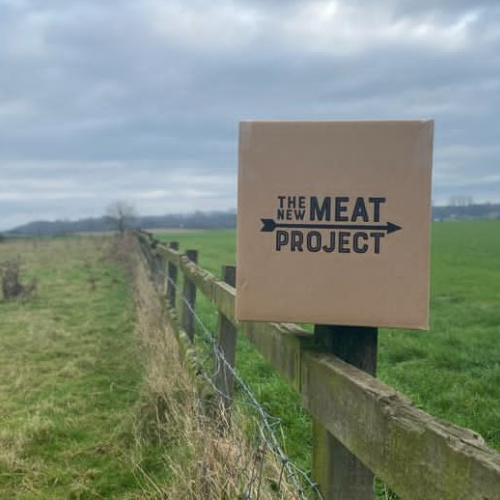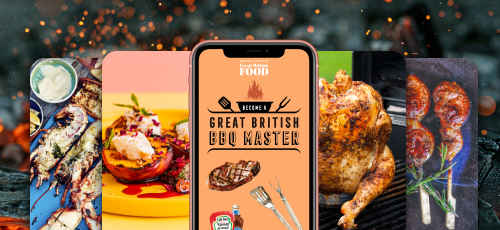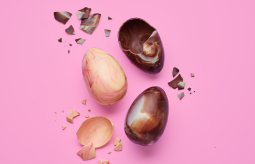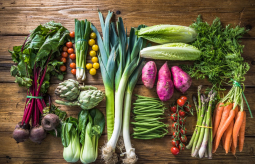Our columnist Sushila Moles, founder of The New Meat Project, shows us how to eat ‘less but better’ by using leftover roast chicken to make tasty meals throughout the week
Chicken is the most popular meat in the UK, and while we all know the importance of choosing free-range birds, in reality only 3.5% of meat chickens sold in the UK are truly free-range. Marketing messages on packaging are deliberately confusing. What’s more, chicken is often found in on-the-go products like sandwiches and ready-meals, making it easy to forget about provenance.
As is the case with most meat, the best way to know that you are choosing a high welfare product is to know where the animals are from. Eat out at independent restaurants that pride themselves in food provenance, and if you’re cooking at home choose organic or a butcher that knows their farms are properly free-range; these butchers can increasingly be found online.
At The New Meat Project, our chicken is properly free-range. The birds spend their days free to roam from dawn until dusk, exhibiting all of their natural behaviours, and they overnight inside large, naturally well ventilated barns. There is a huge difference in taste and texture in birds that have run around outside, and it’s reassuring to know our birds are only given antibiotics if really needed, rather than routinely, as in industrial farming.
It costs more to produce meat that is farmed in this way; being both respectful of the animals and conscious of the environment. One way to mitigate some of the extra cost is to buy a whole chicken, instead of the separate cuts, and do as your grandparents did by making a whole bird stretch into many meals. When you think about chicken in this way, the price tag of a well-reared chicken doesn’t seem so much.
Creating several meals to last the week or to have stored away in the freezer is a brilliant way to spend less on a weekly shop and also to minimise food waste. What could be better on a busy weeknight than pulling a ready made mix of leftover roast chicken, tarragon and leek, and a pack of puff pastry and knowing you’re only 45 minutes away from a buttery chicken pie?
How to use a whole chicken
_500_500_c1.jpg)
Roasting or poaching a whole bird will feed 4 to 6 people, with plenty left over for more meals and to make stock for soups and risottos. Create flavours in the mothership recipe which will help decide how to use the leftovers.
For example, a flavoured butter with lemon zest, crushed garlic and tarragon under the skin of the roast bird will be delicious in a chicken pie or in salads or sandwiches. Smoked paprika, cumin, fennel seed and garlic for Mexican style fajitas or in a black bean soup with lime, tomato and coriander salsa and sour cream.
A personal favourite of mine is to poach a whole chicken with Chinese Five Spice, garlic, ginger, star anise, spring onion and soy sauce for a Pho noodle soup. I add homemade hot chilli sauce to my bowl, made with sesame oil, schezwan pepper, star anise and sesame seeds, while my children slurp their bowls unadorned.
Learning how to make your own stock is an essential life skill! It’s the basis for so many meals and is so handy to have a supply in the fridge and freezer. When you realise how full of rubbish powdered cubes are and how expensive ‘fresh’ stock pots are, you’ll never throw away a chicken carcass again. It’s a good idea to save up chicken carcasses in a ziplock bag in the freezer to make a big pot.
Sushila’s chicken stock recipe.
About The New Meat Project

The New Meat Project is founded by Sushila Moles. Having gained a Masters in Food Anthropology and worked in food related businesses all of her life, Sushila has first-hand experience that farming is a force for good in society. Her working life has taken her from Michelin-starred restaurant Rhodes 24 as head waiter to La Fromagerie in Marylebone, where she could indulge her love of cheese, and to River Cottage, where she played a lead role in promoting one of the country’s best known sustainable and ethics-driven businesses.
Sushila is also co-owner of Cabrito, the multi award-winning goat meat business, run by her partner James Whetlor, that has been at the forefront of changing the UK goat dairy practice of euthanising unwanted male kids and rearing them for meat instead. These experiences have convinced her of the importance of high welfare, low impact meat in our food system, both for our own health, the health of our communities and for the health of the planet.
thenewmeatproject.com
-
Blog
• one month ago -
Blog
• one month ago -
Blog
• one month ago -
Blog
• 2 months ago
-
The Best British Easter Eggs 2024
one month ago -
Our pick of the bunch for your Easter table
one month ago -
Five Easy Ways to Reduce Food Waste
one month ago




_(1)_1048_711_64_s_c1.jpg)









